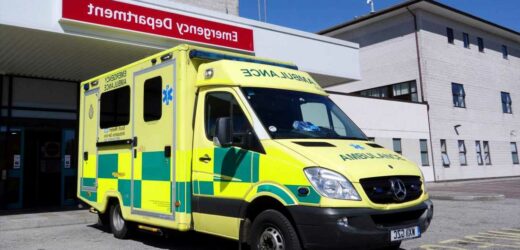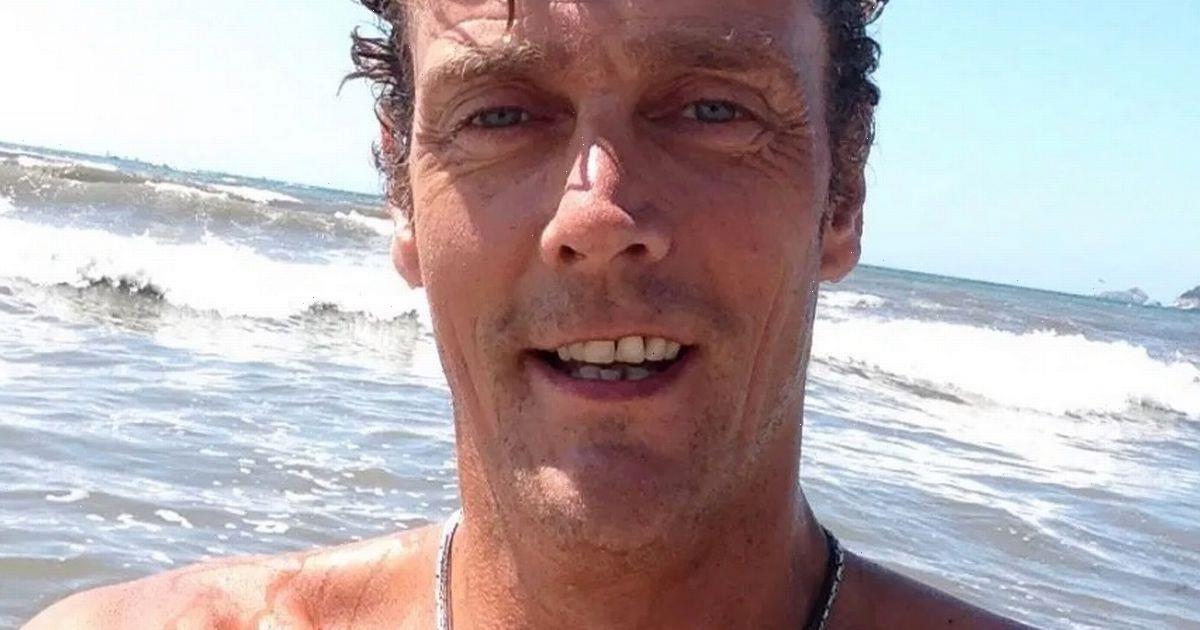A MAJOR NHS hospital has ordered staff to discharge patients early – despite the potential risks involved.
The Royal Cornwall Hospitals NHS trust is desperately trying to ease pressures this winter by sending people home early, even though patients may be harmed.
But doctors have blasted the decision, branding the policy unwise.
In a memo sent on January 8 three trust bosses said the Royal Cornwall hospital in Truro, “has been under significant pressure for the last two weeks and it is vital that we are able to see and admit our acutely unwell patients through our emergency department and on to our wards”.
It had agreed a plan to relieve pressure with unnamed “health and social care partners” after discussing “a number of possible mitigations”.
The memo added: “One of these mitigations was to look at the level of risk that clinicians are taking when discharging patients from Treliske hospital either to home or to community services, recognising that this may be earlier than some clinicians would like and may cause a level of concern.
There is a possibility that some of these patients will be readmitted or possibly come to harm
“It was agreed, however, that this would be a proportionate risk that we as a health community were prepared to take on the understanding that there is a possibility that some of these patients will be readmitted or possibly come to harm.”
The message was signed by Dr Allister Grant, the trust’s medical director, Kim O’Keeffe, its director of nursing, midwifery and allied health professionals and Susan Bracefield, its director of operations.
Trust chief executive Kate Shields said the memo was in response to the hospital getting "very full" and not being "the answer for everything".
It comes as the hospital has been under intense strain this winter and has spent part of it on “black alert”, which is an admission that a hospital cannot cope with the demand for care.
Some people arriving at the A&E unit have been forced to wait for up to 12 hours and it has asked those with minor illnesses to seek care elsewhere, such as at a GP surgery or pharmacy.
Intense pressures
The trust’s move has increased concern that hospitals are having to make tough decisions about how to respond to the intense pressures that winter has brought.
The British Medical Association expressed their concern at the Cornish Trust's plan.
Dr Chaand Nagpaul, BMA council chair, said: "The BMA has repeatedly warned that the NHS has been woefully underfunded for over a decade, and this has resulted in an understaffed service with inadequate numbers of beds and facilities.
"Just last week we heard that December marked another record low for NHS performance – with one in five patients waiting longer than four hours in A&E, and 12,000 waiting more than 12 hours for a bed.
"In the face of these pressures, this example highlights the frankly unacceptable situation doctors are facing on the ground, being pressured to discharge patients earlier than is clinically appropriate – putting both themselves and patients at risk – due to a lack of capacity and unprecedented demand.
"This is a dire indictment of the state our NHS has been allowed to creep into.
"Doctors’ primary professional duty is to make the care of their patient their first concern.
"They must treat the patient in front of them, based on their individual clinical needs, and doctors should never be coerced to go against their expert and considered judgement.
This example highlights the frankly unacceptable situation doctors are facing
"We are writing to the Trust to express our serious concern and we are ready to support any doctor who refuses to compromise their care to patients. We are also reaching out to the GMC.
"As the trade union representing all doctors and medical students in the UK, we urge any members who are worried about receiving such a message, either at this trust or elsewhere, to seek advice from their medical defence organisation as well as from the BMA so that they can receive support on the ground."
However, the Royal College of Physicians said that prioritising beds and specialist care for the sickest patients would benefit those in the greatest need.
Dr John Dean, its clinical director for quality improvement and patient safety, said: "Clinical staff make decisions on a daily basis that consider the risks and benefits to the individual patient and to other patients.
Serious concern
"Physicians will always put the safety of the individual patient they are caring for first."
Kate Shields, chief executive at Royal Cornwall Hospitals NHS Trust, explained the hospital has been "very full", adding that some patients, particularly elderly patients, could have been cared for at home.
A Cornwall & Isles of Scilly Health & Care Partnership spokesperson told The Sun Online:
“Our doctors, nurses and other frontline staff are working exceptionally hard to care safely for the much higher number of older and sicker patients who need our health and care services this winter.
Most read in health news
LORRA LAUGHSThe jokes that work as a painkiller, help anxiety and fight dementia
Major change to Covid booster jabs from Monday as PM set to ease restrictions
NHS rule change could see MILLIONS charged for prescriptions they now get for free
Javid says 'no need to move from Plan B' & rules out restrictions now
“Nobody will be discharged if they still need care that can only be provided in hospital, but for lots of people it is far better for their physical and psychological wellbeing, and far more convenient for them, to recover at home or in a community setting with the right support, which also means that beds are available for those who need them more.
“The Royal College of Physicians agrees that ‘For patients in hospital, if they can be safely supported at home and their treatment and recovery continued there, this should occur as soon as possible.
"This means that other patients can get hospital care who might otherwise have to wait and be at risk of worse outcomes.’”
Source: Read Full Article








